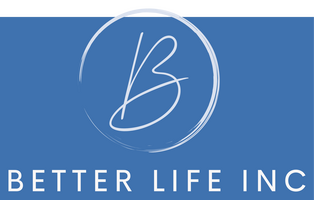Hello friend,
Growing up with parents who struggled with emotional maturity presents unique challenges to us as adults. Parents who had difficulty expressing themselves, expressing and talking frankly about emotions, had their own impulsive behaviors, and general lack of emotional awareness cannot demonstrate to us as children how to regulate our own emotions, and in addition, leave us with an empty void. Feeling unheard, not understood, and feeling unhealthy attachments to our caregivers will cause us to search for healthy attachment, unfortunately until we find it. Understanding that emotional immaturity often stems from unresolved issues or past traumas allows for a compassionate perspective when considering our parents behaviors. While it doesn’t excuse problematic behavior, it provides context and opens the door to empathy and compassion.
Recognizing some of the signs is one of the first steps in our own healing journey. Growing up with emotionally immature parents often leads to under-developed coping mechanisms, problem solving skills, and adaptive strategies. These may include becoming overly responsible, seeking approval, or withdrawing emotionally.
Emotionally immature parents may have struggled with both creating and respecting other’s boundaries. Learning to set and enforce healthy boundaries is a crucial skill for navigating relationships with individuals who may not fully understand or respect emotional limits. Our parents also may have hindered our development of emotional independence. Therefore, our cultivating self-awareness, self-expression, and emotional resilience becomes essential in fostering personal growth.
For those who become parents themselves, breaking the cycle of emotional immaturity is a transformative goal. Awareness and intentional efforts to nurture emotional intelligence create an opportunity for healing and growth.
You might have been raised by an emotionally immature parent if:
- You felt an internal sense of loneliness. Even when other family members were around. You have no idea where emotional loneliness comes from but know that there is something missing.
- You felt an insufficient connection to a caregiver and felt like you were on your own. You learn to not do anything to upset the parent because by learning to better read them and not upsetting them, they are better parents, and you are more safe. Safety is a big deal since we count on our caretakers for our survival.
- You felt like your caregiver was not interested in your inner world and was hostile towards you. How you felt wasn’t consistent with how they felt or what they expect from you. Your inner world messed up their sense of security and their hostility sent you a message that there was something fundamentally wrong with you; wrong with the way you felt, the way you thought, the way you acted, and they told you that you were selfish or crazy. Caretakers made accusations about your motives and questioned your personality which made it feel unsafe to be authentic and transparent with since the people you should have been able to be close to acted as if something were wrong with you, thereby sending a message that it’s not safe to be close to anyone on an intimate level.
- They blame you for how they felt: You made them angry, you made them embarrassed, you made them unhappy…their emotions were your fault.
- When you attempted to get close to your parent they pushed you away and became defensive causing you to feel judged and inadequate. You felt uninteresting and believed you were responsible for alienating others. You now believe others around you are inpatient, disinterested, reactive, and you likely misinterpret other’s intentions.
- You were able to pick up others body language, tone of voice, micro expressions, and used that information to calm, soothe, and distract your parents and eventually others in your adult relationships. You learned to analyze and to stay two steps ahead of the caretaker to figure out what you needed to do next. This neurological “groove” goes around and around creating memories in the limbic part of the brain, causing you to feel embarrassed, overwhelmed, like you cannot survive situations, and you collapse in adulthood. You lack resilience because you have been in flight or fight mode with an impatient parent, and you are stuck in perpetual problem-solving mode.
- You listen to podcasts and read books and go to therapy and talk to friends and try to figure out what is “wrong” with you. You feel anxious, and blame yourself for other’s behaviors, reactions, and responses; anxiety is perpetually trying to solve a problem in your head. When you do figure something out you become excited when things make sense to you.
- You act out and are unable to self-reflect to see your part and your role in your issues. You blame others, cannot forgive, and root yourself in martyrdom which possibly manifests into other personality disorders like narcissism since you cannot see your own fault or understand why everything always happens to you and your mantra becomes “it’s unfair”.
- You are fearful of setting boundaries because as a child it was not demonstrate and you were not encouraged to. Due to lack of boundaries, your needs are not getting met and you begin to manage, manipulate, and parent others in order to get the outcome you are now looking for.
- You were parented with threats – you will have to find someplace else to live, you will end up in your room without dinner – and since this is not the outcome you are looking for, you play the role that keeps your parent happy and keeps you safe.
- You rehearse things (ruminate) over and over in your mind as an adult just as you did as a child to be prepared for parental outcomes. What might they say back, how they will probably respond. You analyze and problem solve to navigate the parent’s feelings and emotions and ignore your own and what you really want.
- You were rushed to come up with answers and explain yourself immediately, then told you were making excuses, and were ridiculous. You begin reacting instead of responding, to put others in their place, develop defensiveness, to otherwise stop the other person before they can exploit your intentions.
- You begin seeking romantic relationships to fill the void. This is referred to as limerence. Limerence is an intense and involuntary emotional state that includes constant preoccupation with the person, intense emotional attachment, dependency, and a longing for reciprocation, heightened energy and excitement around the object of affection, idealizing them and downplaying their flaws, and fear of rejection leading to anxiety and insecurity.
Defining Emotional Immaturity in Parenting
- Lack of Emotional Regulation: Parent’s difficulty managing their own emotions, leading to unpredictable reactions.
- Inadequate Communication: Challenges in expressing emotions or communicating effectively with their children.
- Unresolved Past Trauma: Unprocessed emotional wounds impacting parenting behaviors.
The Impact on Childhood
- Emotional Neglect: Children may experience emotional neglect, feeling invalidated or unseen in their emotions.
- Role Reversal: Assuming adult responsibilities or acting as a caregiver for the emotionally immature parent. Children find themselves navigating their parents’ emotions first and foremost and put their own on the back burner leading to people-pleasing or fawning which is a trauma response.
- Confusion and Insecurity: Mixed messages or unpredictable behaviors can lead to confusion and insecurity in children. Children then work to navigate when to approach their parents, hypervigilant to the parent’s moods, feeling like they are walking on eggshells, leading to co-dependency in adulthood.
Effects of Parental Emotional Immaturity
- Emotion Suppression: Children might suppress their emotions to avoid conflict or seek parental approval.
- Difficulty in Expressing Emotions: Struggles in recognizing and expressing emotions appropriately.
Relationship Patterns
- Attachment Issues: Impact on forming secure attachments and healthy relationships.
- Repeating Patterns: Risk of repeating similar emotional dynamics in future relationships.
- Limerence: Looking for a partner to fill the hole and void and seeking partners who too are emotionally unavailable and thus familiar.
Self-Perception
- Low Self-Esteem: Children may internalize feelings of inadequacy or lack of worth.
- Identity Formation: Challenges in forming a clear sense of self or personal boundaries.
Understanding and Acceptance
- Acknowledgment: Recognizing the impact of parental emotional immaturity on one’s upbringing. This will not change the parent and you will need to find other ways to relate to them.
- Separating Identity: Understanding that parental behavior doesn’t define personal worth.
Seeking Support
- Therapy or Counseling: Seeking professional guidance to process emotions and develop coping strategies.
- Supportive Networks: Finding support in friends, mentors, or support groups for validation and understanding.
Self-Compassion and Self-Exploration
- Self-Care Practices: Engaging in activities that promote emotional well-being and self-care.
- Self-Discovery: Exploring personal values, boundaries, and building a sense of self.
- Build Resilience: The only way through something is actually going through it even if afraid or anxious. Create the time and space to meet challenges. Then be able to look back and take an inventory of all the things you have been able to get through and accomplish. Make a brag book.
- Build Self-Esteem: The more you practice something the better and more proficient you get at it. This builds confidence. Reassure yourself that what you have felt was what you experienced in childhood.
- Build Boundaries: We teach people how to treat us and it’s never too late to begin setting healthy boundaries.
- Positive Self-Talk: “It’s okay”, “you’ll come back”, “you’re strong and a survivor”, “you’re allowed to make mistakes”, “you can survive this because you are powerful.”
- Don’t be in Perpetual Problem Solving: Flight is a trauma response where we are impatient, walk away from things, push ourselves, or we fight to resolve issues between us and someone else. Fighting is not a resolution but maintains martyrdom with an emotional response leading to a physiological response including tension, anxiety, and possibly even actual physical fighting.
- Don’t feel rushed: You can excuse yourself, ask for more time, think about what you want to say, and ask a therapist to role play with you and help you reframe while allowing you all the time in the world to respond.
- Journal: Reflect on thoughts, conversations, behaviors and find meaningful readings that resonate with you to also reflect on. Make a gratitude list and a list of affirmations.
- Treat yourself with sympathy and empathy, respect, and encouragement: Don’t entertain the negative voices of those who put you down to feel important which later became your own self talk.
Conclusion: Navigating the Journey to Emotional Healing
Being raised by emotionally immature parents shapes our emotional landscape, but it doesn’t define our future. By acknowledging the impact, seeking support, and engaging in self-exploration, individuals can embark on a journey towards emotional healing, self-discovery, and building healthier relationships.
If any of the above information resonates with you, seeking professional guidance, a support network, and tools to facilitate self-esteem, self-confidence, and self-development can contribute to healing with possible time, support, and compassion.
As you embark on this path, remember that understanding your parents’ limitations doesn’t diminish your worth or potential for a fulfilling life. Embrace your journey with resilience, seek support when needed, and celebrate the steps you take toward creating a healthier emotional landscape for yourself and future generations. Here’s to the ongoing journey of understanding and healing.
For further information on your healing journey:
Understanding Complex PTSD and Healing | Better Life Inc
Setting Boundaries in Relationships | Better Life Inc
Healing and Thriving Beyond Unhealthy Relationships | Better Life Inc
Transforming Relationships: Healthy Communication for a Fulfilling Life | Better Life Inc
Connection in Relationships | Better Life Inc
Wishing you affection and growth,

